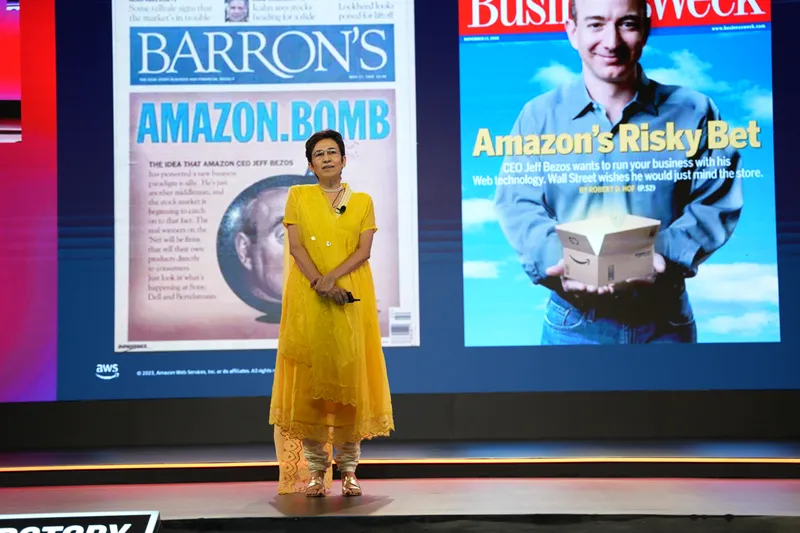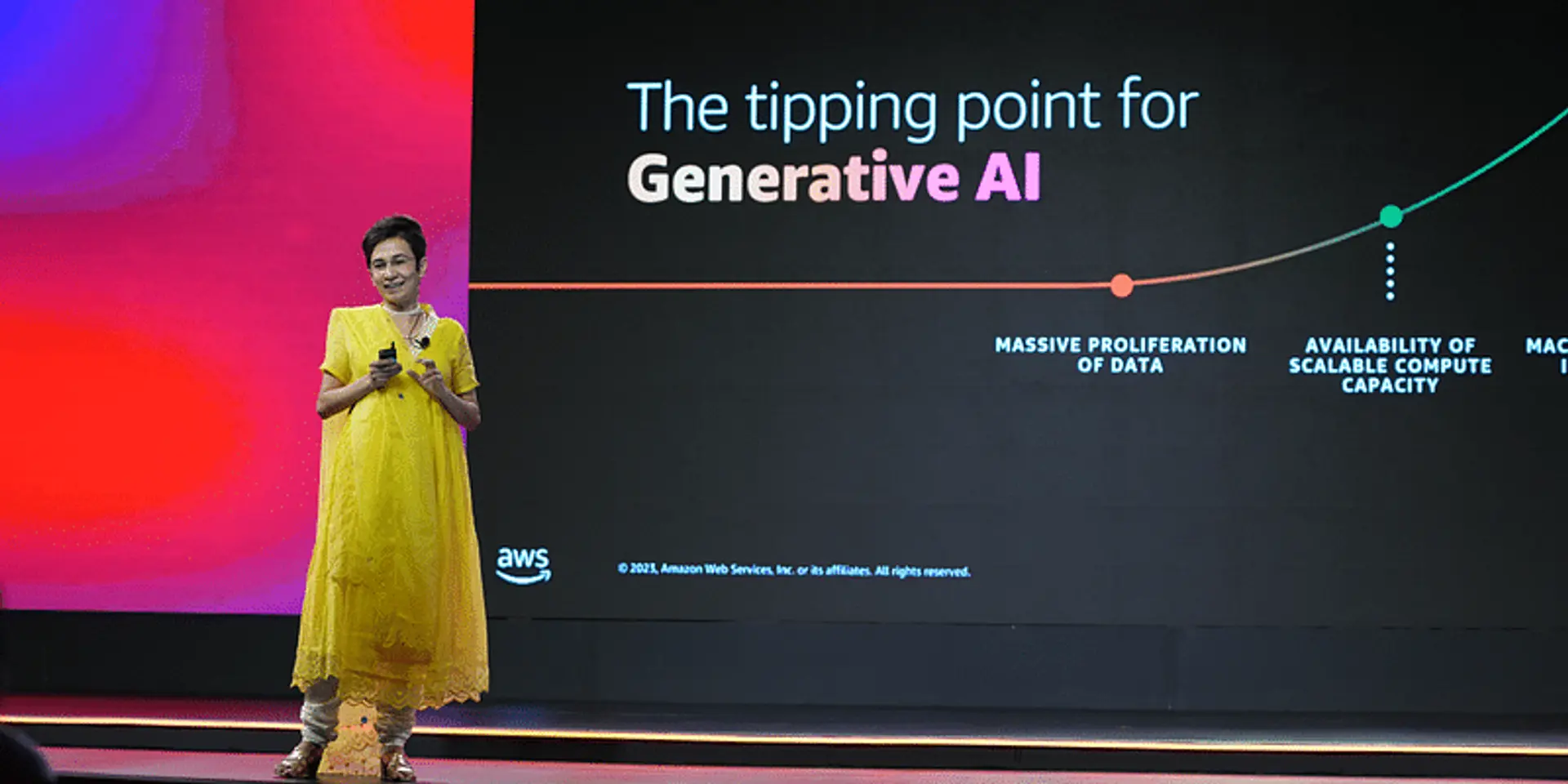Generative AI is far from being a passing fad, says AWS’ Vaishali Kasture
Delivering a keynote address at TechSparks 2023, Vaishali Kasture expressed that in the last six months, whether in a casual dinner conversation, a meetup with a friend, a discussion with a CEO, or a board meeting, GenAI has been an integral topic.
In the landscape of technological progress, Generative AI (GenAI) has emerged as a remarkable achievement.
Vaishali Kasture, Director and Country Head of AWS Commercial Business India and South Asia emphasised that GenAI is not a passing fad that is going to go away tomorrow.
Delivering a keynote address at TechSparks 2023, Kasture expressed that in the last six months, whether in a casual dinner conversation, a meetup with a friend, a discussion with a CEO, or a board meeting, GenAI has been an integral topic.
“You may not know that you are talking to a solution powered by GenAI, but it is there, ever-present,” she remarked.
Looking at the speed at which new technologies gain widespread adoption, it becomes evident that GenAI is establishing unprecedented records.
The journey to 50 million users took 38 years for radio, less than 13 years for television, less than three years for the Internet, just a year for Facebook, four months for WeChat, and just 30 days for GenAI to reach this milestone—adding 1.5 million new users daily, shared Kasture.
Kasture elaborated on how the general public’s understanding of GenAI likely began with consumer-oriented applications like ChatGPT. However, in her current discussions with CEOs of both enterprises and startups, as well as cloud-native businesses and independent software vendors striving to transition their solutions into SaaS models, she noted a significant shift away from mere hype.
“We are moving beyond the hype cycle to a more sustainable one,” she noted, adding that GenAI has advanced beyond mere experimentation, with people having completed their proof of concepts, and are now transitioning into a phase of serious execution.
According to Kasture, the convergence of data, massive computing capacity, and machine learning (ML) models has significantly piqued the curiosity, and “we are now at that tipping point for GenAI.”
GenAI finds applications across a range of sectors including financial services, healthcare, automotive, marketing, and media and entertainment, she said, adding, “Every day somebody comes in and tells me that we found a new use case for GenAI.”
Experimentation and adoption of GenAI are happening in these broad areas: enhancing customer experience, boosting employee productivity, improving business operations, and creativity.
As people embrace this revolution, it's crucial to build their AI practice on two key pillars: responsible AI, with a focus on ethical foundations; and sustainable AI, considering environmental impact and resource consumption in their solutions, as per Kasture.
Kasture also highlighted that the average organisational lifespan has shortened to approximately 10 to 12 years, and embracing technologies like Gen AI can help power a business and keep it innovative.
Speaking about Amazon’s journey, she said, “At Amazon, ML is not new for us. It's a part of what we have done for over 25 years.”
“On amazon.com, we sell 4,000 products per minute, and a significant portion of these interactions are powered by GenAI. Globally, we dispatch 1.6 million packages daily, with much of the route optimisation within our warehouses and fulfilment centres being driven by ML. Alexa operates with the support of 30 ML models,” she added.

Vaishali Kasture, Director and Country Head of AWS Commercial Business India and South Asia.
(AWS), the cloud computing arm of the Seattle-based ecommerce behemoth Amazon.com is playing a pivotal role in advancing the cloud and AI journeys of businesses across the globe.
In India, AWS had humble beginnings in 2011, but a significant breakthrough occurred during 2019-2020, fueled by extensive digital transformations not only within startups but also across enterprises, noted Kasture.
Indian businesses such as , , and are leveraging the power of GenAI through AWS.
While AWS’s parent Amazon.com has evolved tremendously from its origins as an online bookstore over nearly three decades, the cloud computing subsidiary, which was once conceived in the early 2000s within Founder Jeff Bezos’ living room, has now achieved an annualised sales run rate surpassing $85 billion.
Underlining Amazon’s transformative journey as a wellspring of inspiration for startup founders and those engaged with startups, Kasture noted that “it doesn’t matter where you started.”
She said that “100% of your experiments may not be successful,” but people should remain persistent and continue with the spirit of experimentation.
Kasture referenced a quote from Andy Jassy, CEO of Amazon, who helmed AWS from 2003 to 2021, before succeeding Bezos in the role of CEO. The quote said, “Invention requires two things: the ability to try a lot of experiments, and not having to live with the collateral damage of failure.”
Edited by Megha Reddy




